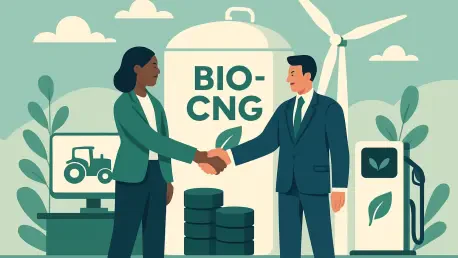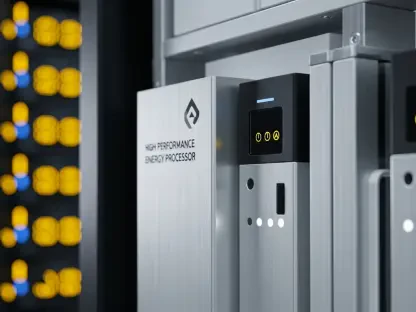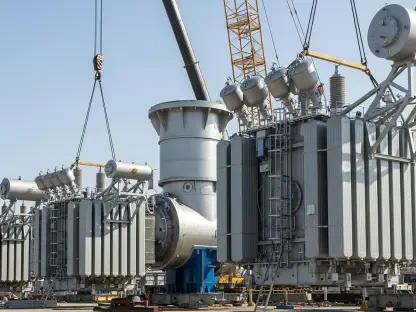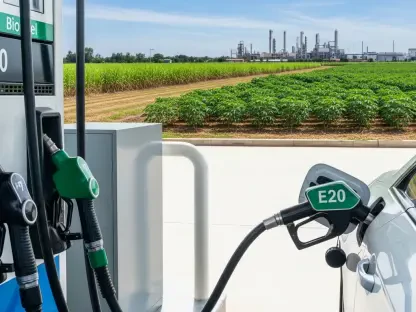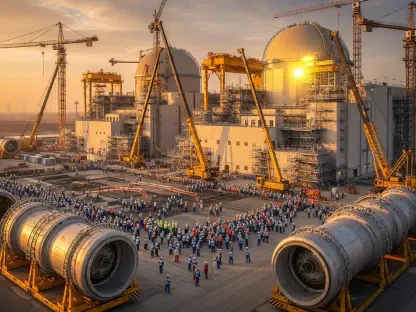Christopher Hailstone is a respected figure in renewable energy and biotechnology, known for his deep understanding of electricity management and grid security. He’s here to discuss a groundbreaking collaboration between NexGen Energia and Organic 121 that’s poised to make significant strides in the Bio-CNG sector. This conversation will delve into the strategic roles of the companies, the anticipated technological advancements, and their contributions toward India’s carbon neutrality goals.
Can you tell us more about the strategic collaboration between NexGen Energia and Organic 121?
The collaboration between NexGen Energia and Organic 121 is a significant leap towards innovation in the Bio-CNG sector. Organic 121 brings a wealth of expertise in microbial solutions, particularly in waste-to-energy conversion. NexGen Energia, on the other hand, will leverage its extensive experience in the Indian energy market to boost research and development efforts. The idea for this partnership naturally evolved from a shared commitment to sustainable biotechnology and the practical need to enhance Bio-CNG technologies. By integrating our efforts, both companies aim to push the boundaries of what’s achievable in clean energy.
What are the main goals you hope to achieve through this partnership in the Bio-CNG sector?
The primary goal is to drive advancements in Bio-CNG technology, focusing on efficiency and scalability. We hope to increase plant performance and make Bio-CNG a more viable option for large-scale energy needs. By streamlining various processes, from microbial fermentation to output and distribution, we aim to set a new standard in the sector. Our vision includes not only improving yields but also ensuring that these improvements are sustainable and scalable across multiple locations.
How does Organic 121’s expertise in microbial solutions contribute to this project?
Organic 121’s proficiency in microbial fermentation is crucial for enhancing Bio-CNG yields. Their innovative approach enables the conversion of waste into energy more efficiently, which is the backbone of our collaboration. One example of their technology in action is the optimized fermentation process that maximizes methane production. This integration serves as a cornerstone for achieving higher efficiency in our plants.
How important is it for NexGen Energia to secure green capital, and how does it position you in the Bio-CNG space?
Securing green capital is vital as it allows us to push the envelope in the Bio-CNG space. This financial backing not only supports our immediate research and development needs but also paves the way for future expansion. With this capital, NexGen Energia is positioned as a leader, facilitating an ecosystem that promotes large-scale adoption of biofuels in India.
What are the implications of the Memorandums of Understanding signed with state governments for NexGen Energia’s expansion?
The MoUs with state governments are critical for expanding our Bio-CNG infrastructure. In states like Uttar Pradesh and Punjab, these agreements provide us with the necessary backing to establish Bio-CNG plants effectively. They underscore a cooperative approach between the public and private sectors to accelerate the adoption of clean energy solutions at a broad scale.
Could you elaborate on NexGen Energia’s plan to invest ₹3,000 crore in Gujarat?
The investment in Gujarat is a strategic move aimed at enhancing both compressed biogas (CBG) and electric vehicle (EV) infrastructure. This significant financial commitment will be directed towards building facilities and logistics networks that support these sectors, effectively creating a robust ecosystem for sustainable transport and energy solutions.
What are the plans for the proposed ₹1,000 crore electric vehicle manufacturing facility in Jammu & Kashmir?
The proposed facility in Jammu & Kashmir is currently in the advanced negotiation stages. This plant is expected to bolster our footprint in the EV sector, creating new economic opportunities and reinforcing our commitment to eco-friendly transport solutions. We are focused on aligning the plant’s output with contemporary demands and standards in the electric vehicle market.
How did the recent USD $1 billion investment from the Kuwait-based firm come about?
This significant investment emerged from a mutual trust and recognition of the potential within the renewable energy sector in India. It underscores a shared vision between the investors and NexGen Energia to drive forward clean energy initiatives. This infusion of capital not only strengthens both companies involved but also highlights the escalating importance and viability of renewable energy in India’s future.
What challenges do you anticipate as you work towards establishing over 1,000 Bio-CNG plants by 2030?
Establishing over 1,000 Bio-CNG plants comes with its set of challenges, including logistical complexities and the need for consistent technological scaling. A unified strategy involving cutting-edge research, skilled workforce development, and streamlined processes is in place to tackle these hurdles. Our focus is on fostering innovation that can adapt to various conditions and demands.
How does this partnership align with India’s carbon neutrality goals?
This partnership is perfectly aligned with India’s ambitious carbon neutrality aspirations. By expanding the Bio-CNG infrastructure, we contribute directly to reducing reliance on fossil fuels and decreasing carbon emissions. NexGen Energia envisions itself as a pivotal player in this landscape, actively contributing to a sustainable, cleaner energy future for India.
Do you have any advice for our readers?
My advice to readers is to view the renewable energy transition not just as a shift but as an opportunity for innovation and growth. Engage with these technologies, understand their implications on our environment and our economies, and consider how you can contribute to this crucial shift toward sustainability.
